Danny Masterson Was Convicted of Rape. What Happens to Scientology?
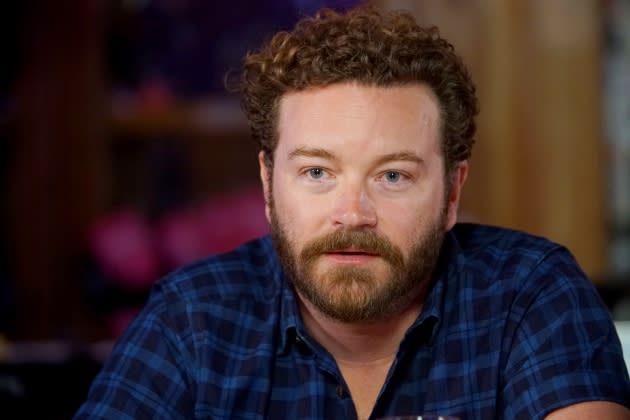
On the morning of April 25, testimony began in the second rape trial of That ’70s Show actor Danny Masterson after an initial trial ended last November in a hung jury and mistrial.
The first witness on the stand was one of Masterson’s alleged victims, Jane Doe 3, who had been in a relationship with Masterson between 1996 and 2002.
More from Rolling Stone
Young Thug's Brother Unfoonk Sentenced to Nine Years in Prison for Violating Probation
Paul Oakenfold Faces Sexual Harassment Lawsuit From Former Personal Assistant
Arnold Schwarzenegger Apologizes for Groping Women in Netflix Docuseries
Deputy DA Reinhold Mueller asked her how she was feeling.
“Not great,” she said.
When Mueller asked what might be causing her concern about testifying, she said, “I’m scared.”
“What are you scared of?” he pressed.
“A lot of people in this room. And Scientology,” she replied.
And so began what turned into three weeks of testimony filled with repeated references to the Church of Scientology, and in much more detail than the first trial. (The Church of Scientology did not respond to a request for comment for the story.)
Los Angeles Superior Court Judge Charlaine Olmedo had ruled on March 28 that she was giving the prosecution more leeway to bring in evidence of Scientology’s practices and policies, which she more narrowly limited in the first trial.
She based that ruling on two concepts: It had become obvious after the first trial that the jury could use more information about Scientology to understand why the three alleged victims — who were Scientologists at the time of the attacks, between 2001 and 2003 — had felt restrained by the church’s policies, and two of them didn’t report to law enforcement for nearly two decades. And second, that discussing Scientology’s rules about keeping things from police would not violate Masterson’s religious rights as a lifelong Scientologist.
Judge Olmedo also allowed more testimony about the prosecution’s theory that Masterson had drugged his victims before attacking them, and prosecutors appeared to streamline their questions after their experience in the first trial.
As a result, on May 31, the retrial jury found Masterson guilty of two of the counts of forcible rape he was facing and hung 8-4 on the third count, leaning toward guilt.
Because the charges were brought under California’s strict “One Strike” law, the two guilty counts carry potential penalties of 15 years to life in prison each, for a total of 30 years to life.
How much time Masterson will actually get is up to Judge Olmedo, who had the actor remanded to custody in the meantime. Masterson’s defense team requested a hearing date of Aug. 4 to file motions; a sentencing date has not yet been set.
In the meantime, Masterson is being held at Men’s Central Jail in downtown Los Angeles.
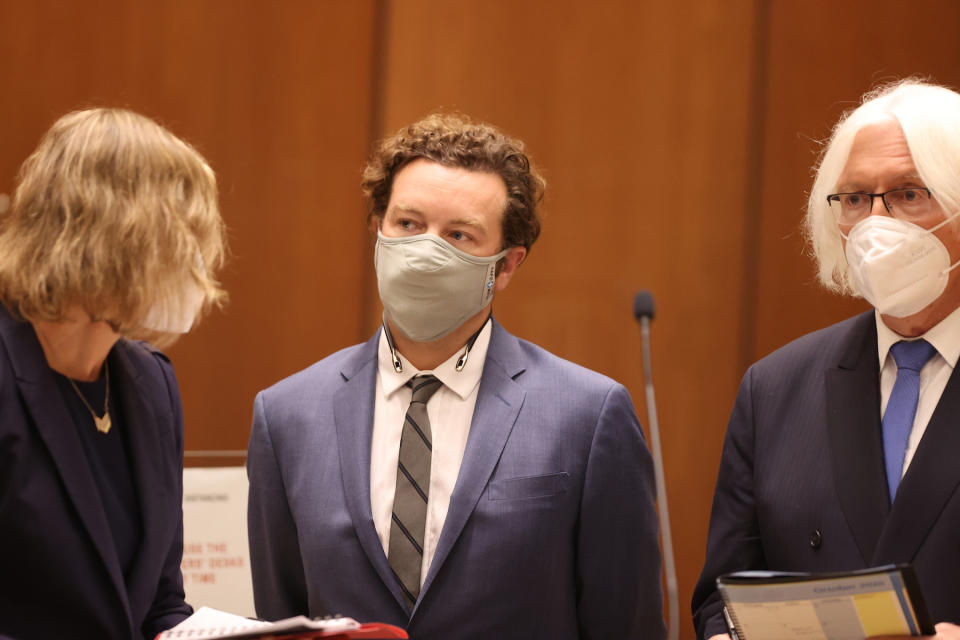
As the verdicts were read out, a loud wail suddenly filled the air — it was Masterson’s wife, actress Bijou Phillips, sobbing so loudly that Judge Olmedo asked her to compose herself.
Phillips had attended every day of both trials along with a large contingent of their families, including on some days Bijou’s sisters Mackenzie and Chynna Phillips, and Chynna’s husband, Billy Baldwin.
In attendance nearly as regularly as Phillips were Danny’s mother, Carol Masterson; and his siblings, Christopher, Jordan, and Alanna Masterson, who are all Scientologists. (The Masterson family did not respond to a request for comment for this story.)
The Church of Scientology itself complained bitterly about the inclusion of its policies in the trial in a statement it released that afternoon.
“The Church has no policy prohibiting or discouraging members from reporting criminal conduct of anyone — Scientologists or not — to law enforcement. Quite the opposite, Church policy explicitly demands Scientologists abide by all laws of the land. All allegations to the contrary are totally FALSE,” read the statement, which was unsigned and posted at a church website.
Throughout both trials, Scientology spokeswoman Karin Pouw repeatedly made similar claims to news organizations, arguing that there is no policy in Scientology that prevents members from turning in other members to the police.
But trial witnesses repeatedly pointed to language in Scientology’s own “Introduction to Ethics” book that said the opposite, listing as a “high crime” the act of “Reporting or threatening to report Scientology or Scientologists to civil authorities in an effort to suppress Scientology or Scientologists from practicing or receiving standard Scientology.”
Former Scientologists said in court that it was drilled into them: They could never go to police about other Scientologists, but instead should report any crimes to Scientology’s own internal “justice” structure.
Jane Doe 3 testified that after she had been attacked by Masterson in December 2001 and decided to turn him in to an “ethics officer” at Scientology’s Hollywood Celebrity Centre, she was told not to use the word “rape” because “She told me you cannot rape someone you’re in a relationship with.”
Jane Doe 3 testified that she was then put on a two-month “ethics handling” rigmarole, which included looking up various Scientology policies. These policies instructed her that if she violated the rules and spoke out about Masterson, she would be subject to excommunication from the church — known as being declared a “Suppressive Person” in Scientology jargon — and would then be subject to “Fair Game,” Scientology’s brand of retaliation with the use of private investigators and other operators.
To make sure she understood that concept, Jane Doe 3 said she was told to model the potential scenario with chess pieces and pebbles, showing that she would be expelled if she slipped up.
“And the representation of the chess piece hitting the stone, what did that represent?” Mueller asked her.
“That I would be utterly destroyed by Fair Game if I were to commit a high crime in Scientology,” she answered.
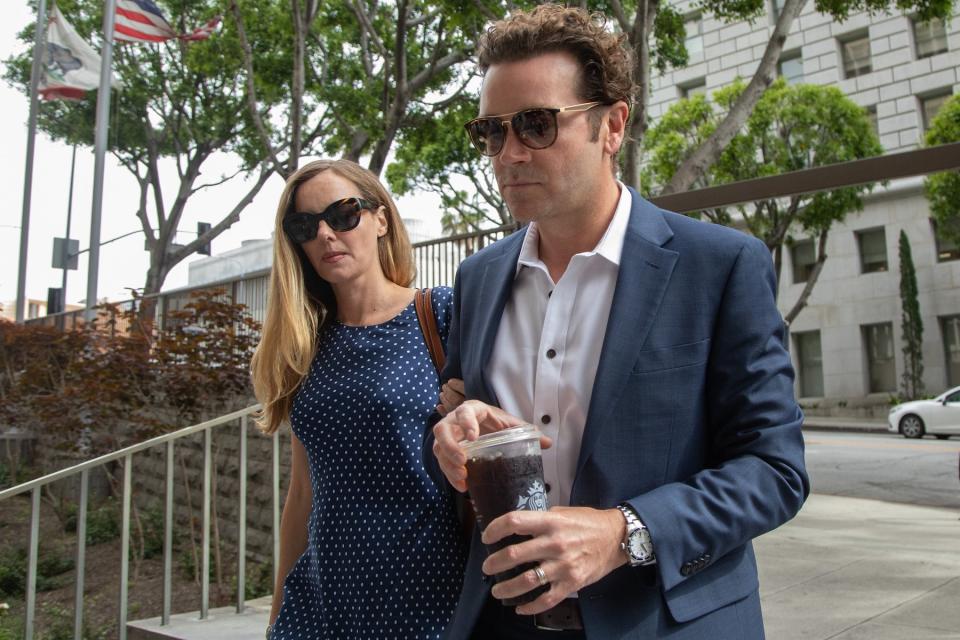
Later, she testified that the ethics handling also required her to make “amends” to Masterson, her attacker, which included getting his car washed. (Jane Doe 3’s case is the one the jury hung on, and read backs of testimony the jury requested suggested that a complex situation involving two different incidents in 2001 had made her case more difficult for the jury to reach a unanimous verdict on.)
On May 1, the court heard testimony from another victim, Jane Doe 1, who described her own difficulties telling Scientology about being attacked by Masterson, in her case in the early hours of April 25, 2003.
Like Jane Doe 3, she testified that she was told by a Scientology “Master-at-Arms” not to use the word “rape,” and she was warned about keeping any allegations within the church. She too was given a “demo kit” so she could demonstrate by modeling with clay and with small trinkets that she understood the consequences of going to the police.
“Demoing it to prove you understand the concept. In Scientology, it’s really common,” she testified.
“What section did he want you to demo?” asked Mueller.
“This part about not reporting to civil authorities,” she replied.
“Did you have an understanding of that before?” Mueller queried.
“Completely,” she said.
All three victims testified that they had been instructed extensively in the prohibition against going to the police.
The prosecution also called former Scientology official Claire Headley, who testified that the only way a Scientologist could report another Scientologist to the police would be first to apply for approval from someone referred to as the “International Justice Chief,” or IJC.
“They would be required to have special authorization to do that through the IJC. That’s what’s written. Personally, I’ve never seen that be approved, but that’s what’s written in policy,” Headley said.
The jury heard that Scientology had allegedly punished the victims for coming forward, had threatened to excommunicate them if they took their allegations to law enforcement, and had protected Masterson because of his celebrity status as an “upstat” Scientology member.
In Scientology jargon, Masterson was shielded by “ethics protection,” which Headley explained.
Headley: It’s a policy written by [Scientology founder L. Ron] Hubbard, which refers to the fact that Scientology or a staffer or member of the Sea Org is in good standing and doing what is expected of them, then they have ethics protection. And if a report is received on them it should be “filed with a yawn.”
Deputy DA Ariel Anson: What does “filed with a yawn” mean.
Headley: File it in a person’s ethics file and take no further action.
With any complaints about Masterson thus neutralized, the prosecution argued he was free to prey on additional women, DA Anson said in her closing argument, drugging and raping women while knowing that Scientology would keep the police from hearing about it.
The court also heard that Scientology would allegedly go so far as to enlist a celebrity member to keep police from hearing about a member being raped.
Jane Doe 1 was an acquaintance of Masterson, not a girlfriend, and she had known him because his circle of friends intersected with hers, which was anchored by another major Scientology celebrity: Lisa Marie Presley.
Jane Doe 1 and Presley were very close, and she testified that Masterson was concerned that Presley would find out about the April 2003 attack.
On Nov. 8, during the first trial, the prosecution revealed that Presley was willing to testify, and had submitted a statement to the DA’s office. According to Deputy DA Mueller, Presley was prepared to testify that in 2004 she had been instructed by the Church of Scientology to talk to Jane Doe 1, her close friend, and persuade her not to take her allegations about Masterson to the LAPD.
Mueller also revealed that Presley’s attorney warned that if they asked her about this on the witness stand, he would advise that she take the Fifth Amendment against self-incrimination.
In other words, Presley’s own attorney realized that she would be testifying not only to an act of obstructing justice committed by Scientology, but one she had taken part in herself.
Mueller said he told the attorney too much time had passed for there to be legal exposure for Presley, but he was willing to grant her immunity for her cooperation. With that agreement in place, Presley then came down to the DA’s office and was interviewed and signed the statement.
But Judge Olmedo ruled that the testimony about Scientology’s obstruction was more appropriate for a separate civil harassment lawsuit filed by the Masterson accusers, and less relevant in a criminal trial about Masterson’s guilt or innocence. She ruled that Presley couldn’t testify about it, and prosecutors decided not to call her at all.
We don’t know if prosecutors were planning to make another attempt to persuade Judge Olmedo to allow testimony by Presley about Scientology for the second trial. Presley died on Jan. 12 after she went into cardiac arrest. She was 54.
Danny Masterson decided not to testify on his own behalf in either trial, which is common in American criminal trials.
And although his family showed up in numbers day after day, they have not spoken to the media about either trial.
When Masterson was first charged by the DA’s office in June 2020, I looked for some background on his family’s involvement in Scientology. I wound up talking to someone who’d first met the Masterson clan in 1982 through the church.
That was Joe Reaiche (pronounced “reesh”), a Lebanese-Australian professional rugby player who met the Masterson family at Scientology’s spiritual headquarters, its “Flag Land Base” in Clearwater, Florida.
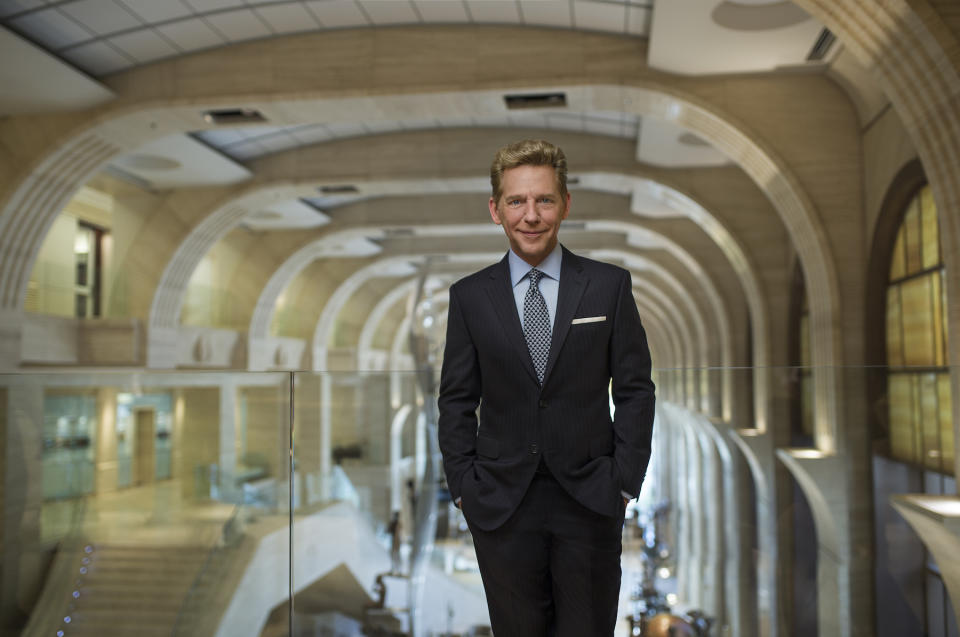
At the time, Danny Masterson was six, his younger brother Christopher was two, and they were at Flag with their parents, Peter and Carol. Two years later, Peter and Carol split, and Reaiche began dating Carol. They were married in 1985, and Danny and Christopher became his stepsons as Reaiche and Carol grew so dedicated to Scientology they joined its hardcore inner elite, the “Sea Organization,” which requires signing a billion-year contract and working around the clock.
Danny and Chris were already enrolled in Scientology schools, but now they saw little of their mother and stepdad.
“We would sleep at the QI — the Quality Inn. It was a cockroach-infested facility. Just a small room with a bathroom,” Reaiche remembers. It was rough on the kids of a Sea Org family. Danny and Chris were on the floor, and Reaiche and Carol had the bed.
“It was a room maybe the size of a kitchen, a bathroom, and a weak air conditioner,” Reaiche says. “To their credit, the boys went through a lot of change to accommodate us in the Sea Org. And they didn’t complain. They were good kids.”
Reaiche specialized in talking Scientologists out of asking for refunds. Carol oversaw auditors (Scientology’s version of counselors) as they delivered L. Ron Hubbard’s processing “technology.”
But after two years, they’d had enough of Sea Org deprivations and returned to being public Scientologists. Carol, meanwhile, went back to managing the budding modeling careers of her sons. She and Reaiche had children of their own — first a son, Jordan, in 1986, and then a daughter, Alanna, in 1988.
And although Reaiche and Carol ended up splitting in 1995, Reaiche remained a presence in the lives of not only his biological son and daughter, but also in the lives of Danny and Christopher.
In 1998, for example, when Danny bought his house in the Hollywood Hills after landing his role on That ’70s Show, it was Reaiche who helped him with the terms of the purchase. (All three attacks reported by Jane Does 1, 2, and 3 occurred at Masterson’s Hollywood Hills home.)
“I got him his mortgage for his Hollywood Hills house in 1998,” Reaiche says. “He’d just booked That ’70s Show when he moved there. So now he has his house, he’s famous, he’s making money. And I went to his house there a few times. I trained Danny, I trained Chris, fitness training. I helped Chris train for movies; Danny needed help in dieting. Whatever help I could give them. When they were in trouble, they’d turn to stepdad Joe.”
But then, in 2005, Reaiche ran afoul of Scientology, which expelled him in a “committee of evidence,” something like a court martial.
Jordan was 19 and Alanna 17, but when he tried to call them, he found that they had been informed ahead of time that their father was being declared a Suppressive Person, and they had already disconnected from him.
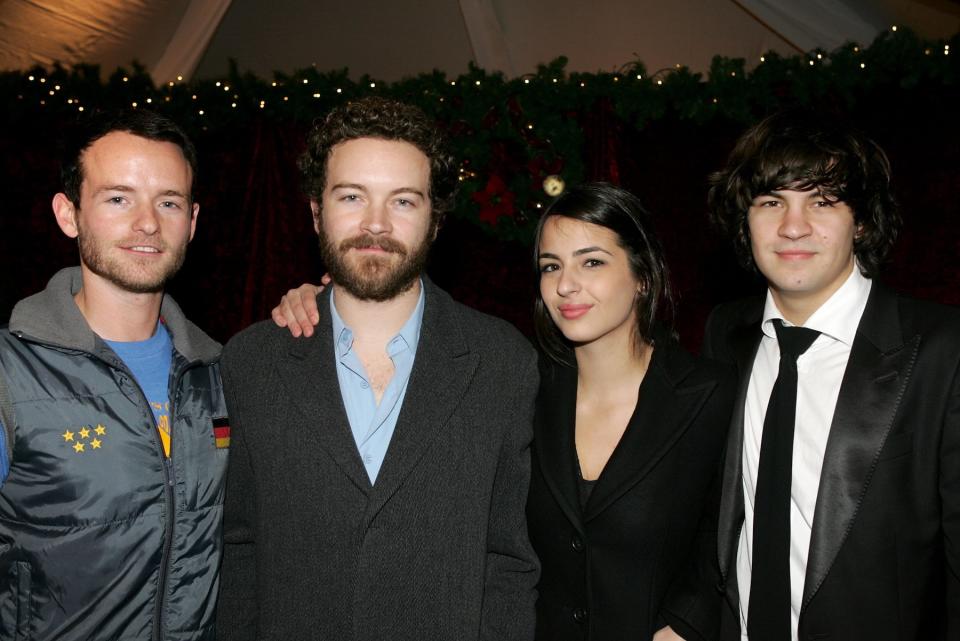
When a Scientologist is declared a Suppressive Person, other Scientologists are instructed to “disconnect” from the “SP” or risk being declared themselves. (This is based on a 1966 policy by founder Hubbard that Scientology claims was rescinded in 1968. But that second order only forbade the use of the term “disconnection,” not the policy itself. Former Scientologists say the policy has never been abandoned.)
Reaiche has never heard from his children since. He pointed out that at the time, they each used his last name, Reaiche; after he was expelled, however, they changed it to Jordan and Alanna Masterson, the names they have used for recurring roles on television shows like Last Man Standing (Jordan) and The Walking Dead (Alanna).
Before the trials began, I had been told that the Masterson family was extremely tight and would stick by Danny no matter what. And they have been loyal Scientologists, even if the children have not seemed particularly interested in ascending the heights of Scientology’s “Bridge to Total Freedom.”
I asked Reaiche about that: Danny, even after being in Scientology his entire life, has not reached “Clear,” an intermediate goal for Scientologists. Reaiche said it was obvious when Danny was young that he had little interest in the intense studying that Scientology’s courses require, even though he was still a loyal member and was known for defending Scientology publicly.
In 2015, as Alex Gibney’s HBO documentary about Scientology, Going Clear, was premiering at the Sundance Film Festival, Masterson gave a fiery interview to Paper magazine about the movie. (Full disclosure: I was featured in the doc.)
“I heard about that documentary — the documentary where they interviewed eight people who hate Scientology. Should be pretty interesting,” Masterson said. “I wonder if Sundance would allow a documentary of, like, eight people who hate Judaism. But, you know, my religion’s fair game, I guess, ’cause it’s new.”
And Masterson described himself as “a spiritual being who likes to understand why things happen in the world … So if that’s weird, then, well, you can go fuck yourself.”
I told Reaiche that seeing Jordan and Alanna in the Masterson family section at the two trials day after day was the most visible reminder of Scientology’s policies in the courtroom.
And we wondered, now that Danny Masterson has been convicted and faces 30 years to life in prison, will Scientology be forced to declare Danny, as well as the rest of the family, SP?
“No way. And I’ll tell you why,” Reaiche reasons. “They’re all about protecting their public relations. If they turn on Danny and they turn on the family, now you’ve got Leah Remini times five.”
Remini, the King of Queens star, was once a very visible Scientology celebrity until her defection in 2013, when she became its most visible critic, with an Emmy-winning A&E series, Scientology and the Aftermath, a podcast series, and now a Substack dedicated to exposing Scientology.
“Although Scientology and its leader, David Miscavige, were not formal defendants, they played a significant role in obstructing justice in this case and other instances of sexual violence. Senior Scientology officials, civilian Scientologists, and their proxies have conspired to silence victims and intimidate witnesses for decades. This case is just the beginning of our plan to hold them accountable,” Remini wrote this week after Masterson’s conviction.
In an interview this week, I asked Joe Reaiche if he thought there was any way that his children, Jordan and Alanna, might now finally have second thoughts about choosing Scientology over their own father.
He admitted that he’s thought about it. Daughter Alanna, he said, might begin to question what she’s been told by an organization that was so brutally exposed in these two trials that have now put her brother away for decades.
And if they do have second thoughts, or if the church expels them?
Reaiche pauses. “If they get declared, I’ll call them.”
Best of Rolling Stone
